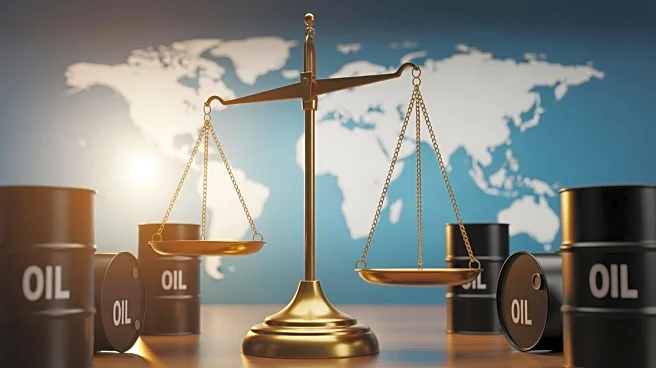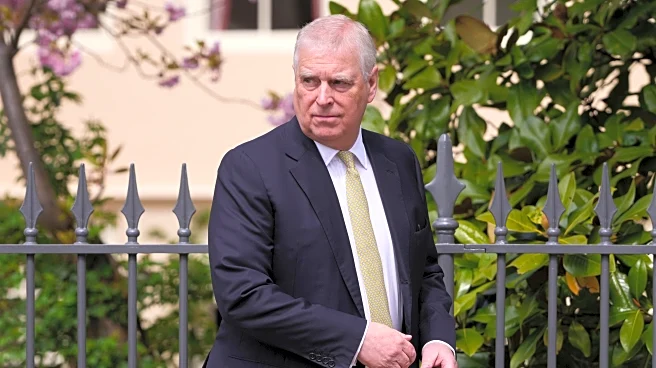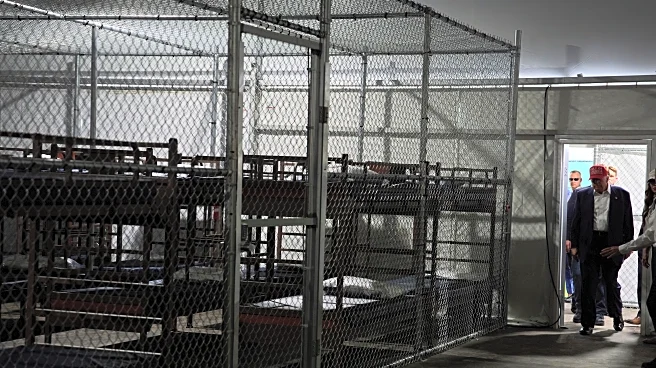What's Happening?
Iraq is currently in negotiations regarding its OPEC production quota, as stated by Oil Minister Hayan Abdel-Ghani during an oil conference. Despite having a production capacity of 5.5 million barrels
per day (bpd), Iraq has adhered to its OPEC quota of 4.4 million bpd. The country's current oil exports stand at 3.6 million bpd. This development comes after Iraq submitted plans in April to reduce oil output to align with agreed quotas, following a history of overproduction. Additionally, a recent fire at the Zubair oilfield did not impact exports, and the Kirkuk oil pipeline to Ceyhan resumed operations in late September after a prolonged shutdown.
Why It's Important?
The negotiations over Iraq's OPEC quota are significant as they reflect the country's efforts to balance its production capabilities with international agreements. Iraq's adherence to its quota, despite having higher production capacity, underscores its commitment to OPEC's collective goals. This situation impacts global oil markets, as Iraq is a major oil producer. The outcome of these talks could influence oil prices and market stability. Furthermore, the resumption of the Kirkuk pipeline and the unaffected exports from the Zubair oilfield highlight Iraq's resilience in maintaining its export levels, which is crucial for its economy.
What's Next?
The ongoing discussions about Iraq's OPEC quota could lead to adjustments in its production levels, potentially affecting global oil supply and prices. Stakeholders, including other OPEC members and international oil markets, will be closely monitoring the outcome. Any changes in Iraq's production quota could prompt reactions from other oil-producing nations, possibly leading to further negotiations within OPEC to maintain market balance.










